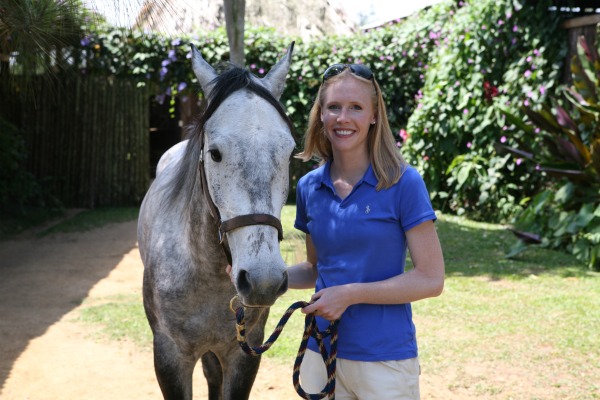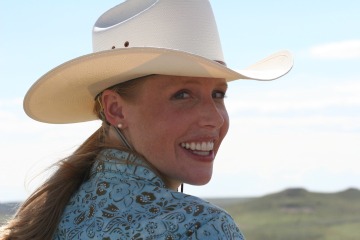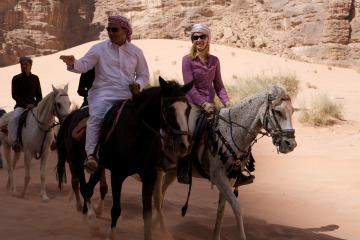
Darley Newman leading a horse in Belize during the filming of Equitrekking’s third season. All photos courtesy of Equitrekking.
I MET DARLEY Newman at Equine Affaire, a regional event for horseback riders and equine professionals, in November 2010. My goal in attending was to rack up professional development hours to count toward my riding instructor certification renewal, and while browsing the seminar schedule, skimming over topics about barn manager liability, hoof abnormalities, and establishing better communicating with donkeys, one workshop caught my attention: “The Importance of the Equine in International Cultures” with Darley Newman.


